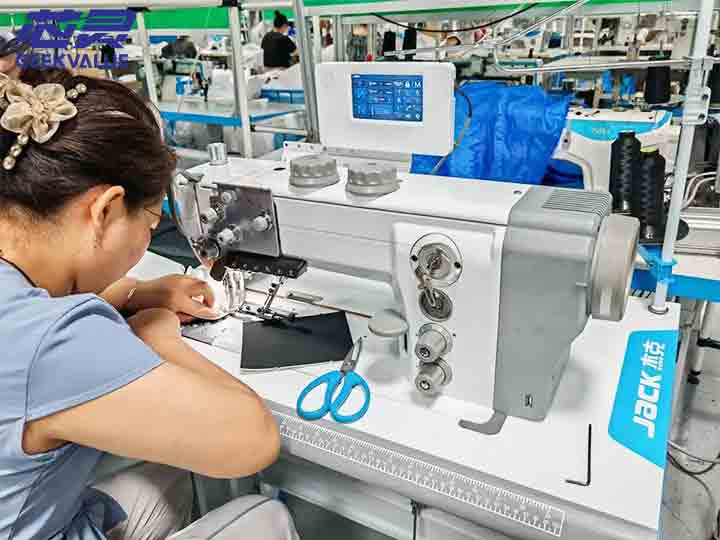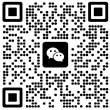Sewing machinery refers to mechanical equipment used to sew clothing, textiles, leather products and other materials. It is widely used in textiles and clothing, shoes and hats, bags, furniture, leather, automobiles, aviation and other fields. According to the use scenarios and uses, it can be divided into two categories: household sewing machines and industrial sewing machines (including flat sewing machines, overlock sewing machines, interlock sewing machines, special machines and roller machines, etc.).
According to the "2023-2024 China Sewing Machinery Industry Development Report", affected by factors such as the slowdown in global economic growth, sluggish manufacturing, high inventory of shoes and clothing, and a sharp contraction in consumption, last year, 287 regulated enterprises in the industry achieved revenue of 28.57 billion yuan and total profit of 970 million yuan, down 12.77% and 45.12% year-on-year respectively.
The output of household and industrial sewing equipment (excluding pre-sewing and post-sewing) fell 3.6% year-on-year to 9.35 million units. There are about 3.75 million household sewing machines, a year-on-year increase of 10.29%, among which the output of multifunctional household machines increased by 5.56% year-on-year. The output of industrial sewing machines is about 5.6 million units, a year-on-year decrease of about 11%; among which 1.85 million units are sold domestically, a year-on-year decrease of 20%, falling back to the level of 2016; the export volume is 4.32 million units, and the export value is US$1.306 billion, a year-on-year decrease of 13.75% and 25.73% respectively.
Against this background, Jack Technology, as the industry leader, saw its revenue in 2023 decrease by 3.78% year-on-year to 5.294 billion yuan, and its net profit increased by 9.08% year-on-year to 538 million yuan. The production volume of industrial sewing machines is 1.797 million units, a year-on-year increase of 27.65%, and the market share is 32.09%, a year-on-year increase of 9.75pct, a record high; the sales volume is 1.962 million units, the same as the previous year.
According to the Frost & Sullivan report, it has ranked first in the annual sales volume (units) of industrial sewing machines in the global omni-channel for 14 consecutive years (2010-2023). The company has more than 8,000 dealers and 500 electric control repair centers, and its products are sold to more than 170 countries and regions. In 2023, export revenue accounted for 53.95% of the main business revenue.
Public information shows that Jack Technology was founded in the mid-1990s and is headquartered in Taizhou, Zhejiang. Its main business is the research and development, production and sales of industrial sewing machinery. It owns brands such as Jack, Bruce, Benma, Maika, and Vibema.
Back to July 18, 1995, the three brothers Ruan Fude, Ruan Jiming, and Ruan Jixiang founded Taizhou Feiqiu Sewing Machine Co., Ltd., which is actually a small family workshop with only more than 10 workers and a dilapidated rural school building of more than 200 square meters. Ruan Fude and Ruan Jixiang are also responsible for sales and try to go abroad to promote products.
"Feiqiu, Feiqiu, let the products fly all over the world", this is the original intention of the three Ruan brothers to start a business. But they soon found that the name "Feiqiu" was pronounced similar to an English curse word, which foreigners did not like. At that time, the movie "Titanic" was released worldwide. Inspired by the name of the male protagonist Jack, Ruan Jixiang registered the Jack brand.
By the end of the 1990s, the company had more than 70 employees and an output value of more than 10 million. More than a dozen managers, including the three brothers, held a "three-day and three-night meeting" to discuss how the company could develop in the long run. In the end, it was decided to transform from producing household sewing machines to producing industrial sewing machines, and embark on the road of scale operation and modern management.
In 2009, Jack Technology acquired the well-known German cutting table companies Bullmer and Topcut at a bargain price, realizing the first overseas acquisition of private enterprises in China's sewing machinery industry, and becoming the world's first complete set of sewing equipment manufacturer integrating pre-sewing and sewing. In July 2017, it spent 6.5 million euros to acquire Italy's MAICA, a shirt sewing equipment supplier with a history of more than 40 years. The following year, it acquired Vibima, a leading company in the field of industrial sewing machines for jeans in Italy.
At the same time, Jack Technology has invested heavily in technological innovation, established 14 major R&D centers in Germany, Italy, Taizhou, Hangzhou, Xi'an, Beijing, Shanghai, Shenzhen and other places, and has a R&D team of more than 1,000 people. The company spends about 7% of its revenue on R&D every year. As of the end of June 2024, it has 3,185 valid patents and software copyrights, and has been the industry leader in the number of patent applications for 12 consecutive years.
Jack Technology was successfully selected as one of the second batch of national champion enterprises in the manufacturing industry by the Ministry of Industry and Information Technology. It is the only intelligent manufacturing software system in the industry that integrates PDM (product data management), APS (advanced planning and scheduling), MES (manufacturing execution system), WMS (warehouse management system), and artificial intelligence, as well as intelligent clothing complete equipment service providers that integrate software and hardware such as intelligent warehousing of clothing fabrics and accessories, intelligent cutting, AI production scheduling and hanging, intelligent sewing, intelligent sorting, and digital finished product warehousing.

Written at the end
Xiachen Street, Jiaojiang District, Taizhou City, where Jack Technology is located, is the largest industrial sewing machine production and export base in the country and is known as the "China Sewing Equipment Capital". One out of every two industrial sewing machines in the world is produced here, with 33 sewing machine industry companies above the designated size and a sewing equipment production capacity of over 2 million units.


